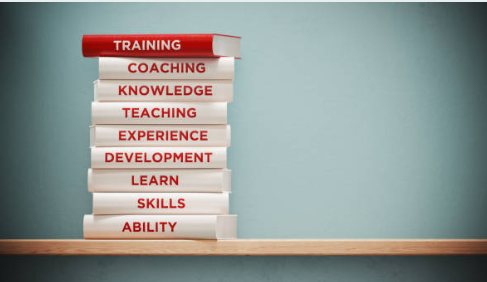Are Self-Help Books Effective?
The question is: Are self-help books effective? Many people believe that they are, but there are many factors that can diminish their efficacy. One of these is the popularity of the books. This can create a placebo effect. The book may seem to help people change their way of thinking, so people will think that it will do the same for them.

Selfpause Affirmation App
Download the app to get 1,000’s of affirmation meditations and everything you need to write, record and listen to your own.
Efficacy of self-help books

Self-help books can be extremely effective, but they can also be completely useless. Some books contain a wealth of unfounded claims. The Food and Drug Administration would never approve of such claims, but publishers rarely face consequences for false advertising. Here are some tips to keep in mind before buying a self-help book.
Research on the effectiveness of self-help books has shown that they can lead to significant changes in the way people think and feel. However, they should not be relied on blindly, since failure to benefit from them can have negative effects. A famous example is the book written by Goethe called Die Leiden des jungen Werthers, which has been known to inspire suicide. Also, failure to benefit from a self-help book can lead to self-blame, leading to further symptoms.
While many academic psychologists write self-help books, this doesn’t necessarily mean they are effective. Most have not undergone rigorous study and research, and many are not well-known in their field. Some books are problem-focused, and others are growth-oriented. However, these authors may be more helpful if they are based on scientific research and data, rather than their own opinion.
When used in conjunction with therapy, self-help books can be extremely beneficial. They can reinforce the progress a client has made during treatment and provide encouragement during the maintenance phase. For example, a client may be fearful of putting their life back together after overcoming an addiction. This fear can make it more difficult for the client to maintain sobriety. However, the counsellor can recommend a self-help book to a client and help them use it as a resource to help them with their recovery.
Another benefit of self-help books is that they do not require the involvement of a professional therapist. A self-help book author provides some tips and suggestions, but it is the client who has to decide which of them is most appropriate for them. Self-help books are a cost-effective alternative to expensive programs, but studies on their effectiveness are limited.
Common writing errors in a self-help book

One of the most common errors in writing a self-help book is not following a standard outline. Many writers get carried away with promoting their belief system or selling their program instead of focusing on the content of their book. Using the “promise, present, explain” format in your self-help book can help avoid this common mistake.
Another common writing mistake in self-help books is the author’s tendency to downplay their expertise. While it is natural to feel intimidated by the responsibility of filling the pages, don’t let your lack of expertise hinder your ability to convey the message you’re trying to convey. Instead, work with the resistance and realize that your readers are interested in your unique perspective.
While writing a self-help book is therapeutic for the author, keep in mind that it’s for the reader, not yourself. Readers want actionable advice, not abstract platitudes and reflective questions. Instead, provide helpful, actionable advice and practical tips that help readers change their behaviors.
Negative consequences of failing to benefit from a self-help book

A self-help book can help you overcome your problems, but it cannot fix the underlying causes. Most self-help books lack a therapist or other professional support, and their advice is largely dependent on the personality of the reader. The result is that readers often fail to make positive changes based on the information they receive.
According to a study by D.W. Rosen and colleagues, many self-help books actually thwart personal growth. In their research, they found that psychobabble destroys spontaneity, candor, and understanding. They also provide readers with a frozen lexicon that reduces the psychological insights that they gain from their reading. According to the authors, this kind of self-help book can lead to a self-blame culture, as well as a deterioration of symptoms.
Our Top FAQ's
There is some evidence that self-help books can be effective in helping people improve their mental health and well-being. For example, a review of research on self-help interventions for depression found that self-help materials, including books, can be effective in reducing symptoms of depression. However, the effectiveness of self-help books can vary depending on the specific book and the individual reader. Some self-help books may be more helpful for certain people or certain problems than others.
It is likely that self-help books will not work for everyone. Some people may find them helpful, while others may not. It may depend on the person’s specific goals, needs, and preferences, as well as their willingness and ability to put the strategies and techniques presented in the books into practice.
Common criticisms of self-help books include that they may oversimplify complex problems, offer overly optimistic or unrealistic advice, and lack scientific rigor or evidence-based approaches. Some critics also argue that self-help books can perpetuate harmful stereotypes or perpetuate harmful beliefs and behaviors.
Self-help books are one of many potential tools that people can use to try to improve their mental health and well-being. They can be a useful supplement to other forms of therapy or self-improvement strategies, but they are not a replacement for professional help. It is important for individuals to consider their own needs and goals and to seek out the appropriate level of support, whether that is through self-help materials, therapy, or other forms of support.
There are some potential risks or downsides to relying on self-help books for personal growth and development. For example, if someone relies solely on self-help books and does not seek out professional help when needed, they may not receive the appropriate level of support for their specific needs. Self-help books can also perpetuate harmful beliefs or behaviors, or may not address the root causes of someone’s problems. It is important for individuals to be aware of these potential risks and to seek out appropriate support when needed.
